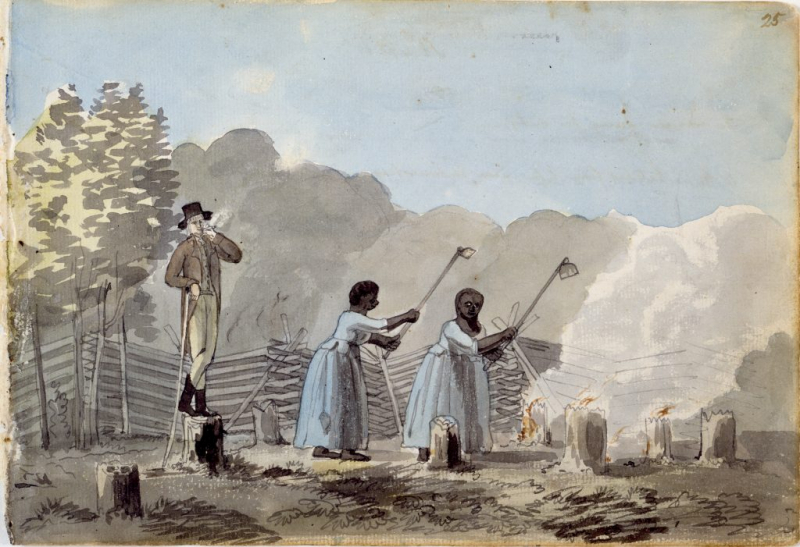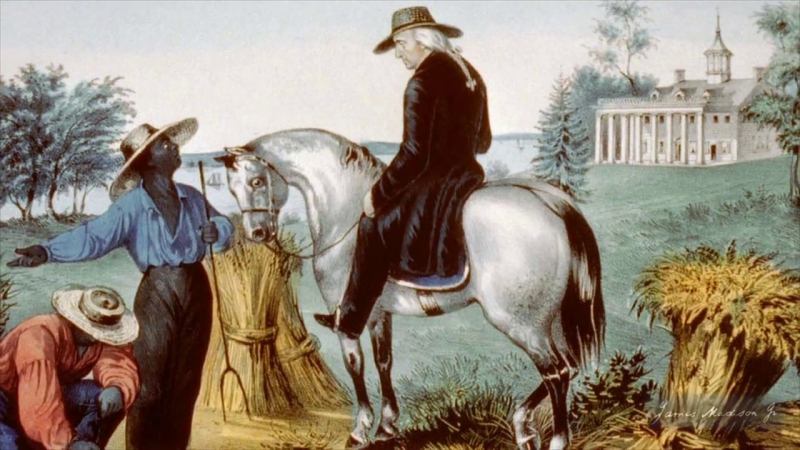He Had A Complicated Relationship With Slavery
One of the great mysteries of Washington's life and legacy is his inconsistent views on slavery. He owned slaves who farmed his land, just like almost all affluent Virginian landowners. When his father passed away in 1743, he inherited his first group of personal slaves. Ten slaves were left in Washington's will, who was just 11 years old at the time. He had acquired at least eight more slaves by the time he wed Martha Custis in 1759 (who brought her own enslaved people to the union).
Washington's views on slavery changed throughout time. He grew more uneasy with the idea of owning and acquiring other people during the Revolutionary War. He advocated for abolition in theory, but never in practice. His plantation, fortune, and social standing all rested on the labor of enslaved people. Washington spent the final three years of his life attempting to bring back one of Martha's slaves after she escaped to freedom in 1796. However, when the time came to write his will, it included a directive to release his slaves, with the caveat that they stay with Martha for the remainder of her days.












